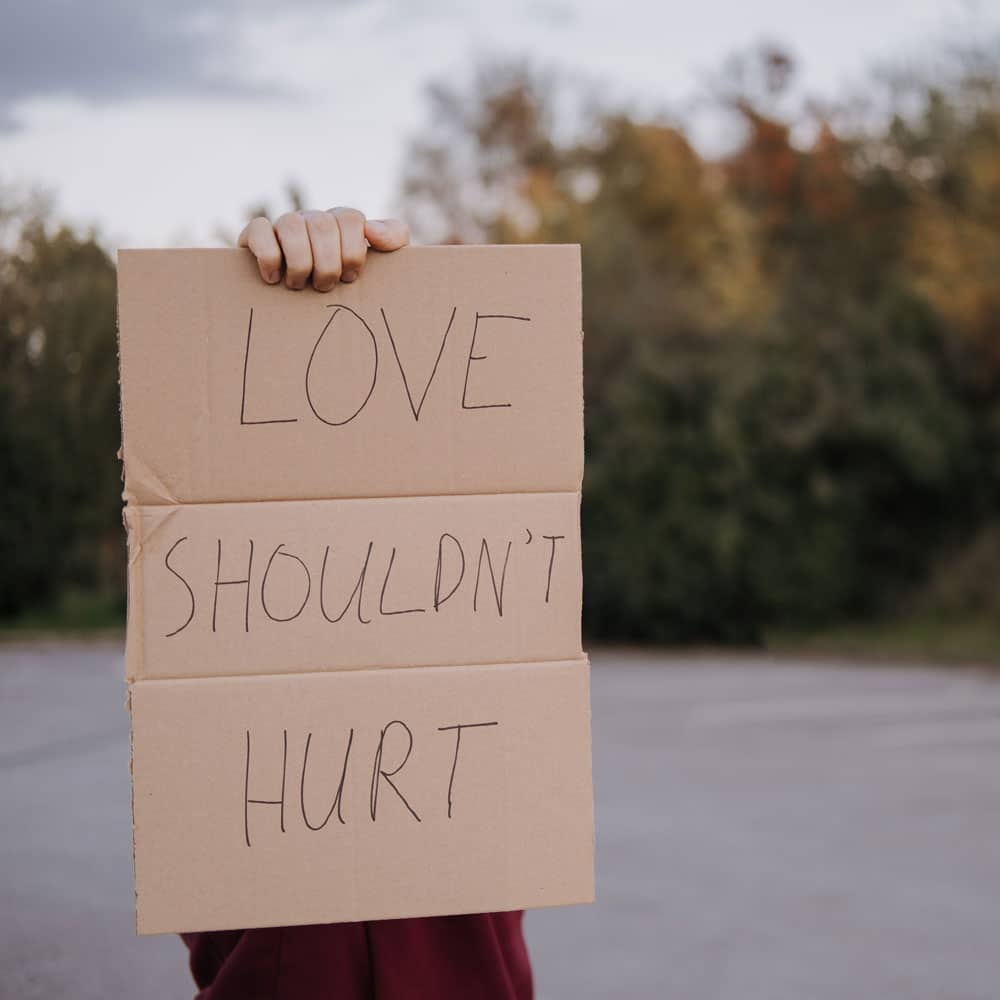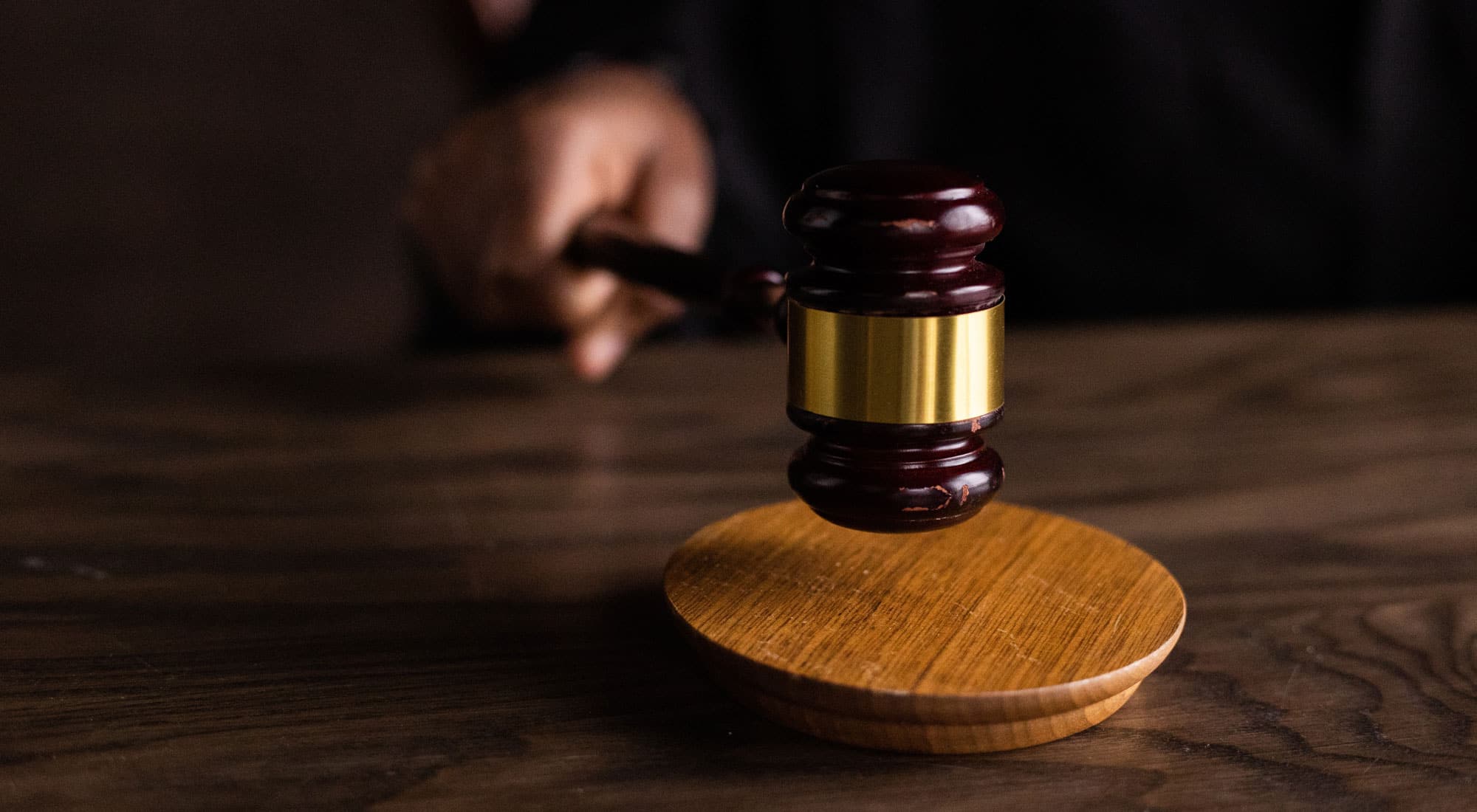By Christa Banister
Considering how shockingly commonplace domestic abuse is, there’s probably a case, or a number of cases, being reviewed in court somewhere as you read this. Nearly 20 people every minute are physically abused by an intimate partner in the United States, according to the National Coalition Against Domestic Violence (NCADV). That breaks down to more than 10 million women and men in any given year.
Nearly 20 people every minute are physically abused by an intimate partner in the United States.
While the bulk of these cases, and the resulting trials, won’t garner any special media coverage, millions were reminded how domestic abuse is no respecter of gender, income bracket, or celebrity status with the much-publicized Johnny Depp, Amber Heard trial.
After referring to herself as “a public figure representing domestic abuse” in an op-ed for The Washington Post, Heard, the ex-wife of the Pirates of the Caribbean actor, was sued by Depp for $50 million for defamation of character. Although unnamed in the newspaper article, he claimed that her accusations led to a loss of prominent film roles.
Given some of the headline-grabbing revelations made by both parties during the civil trial, it’s not surprising that social media lit up with arbitrary, knee-jerk assessments on whether Heard’s domestic abuse allegations were believable. Deciding whether Johnny Depp domestic abuse or Amber Heard domestic abuse was more likely and why, sparked spirited debate.
More Hurtful Than Helpful to the Cause
When high-profile celebrities are involved, it’s not surprising that much of the Johnny Depp, Amber Heard trial became a likability contest spotlighted on talk shows, TikTok, and memes that circulated on social media.

There were repeated discussions of body language and believability. Personal bias and assumptions often colored perceptions about who was the perpetrator and who was the real victim. With only a selected number of clips showcasing alleged Johnny Depp domestic abuse and Amber Heard domestic abuse, and a small window into a 15-month marriage, snap judgments were routine and prevalent.
Experts in the field of sexual victimization and perpetration noted in USA Today that many individuals who’ve experienced domestic and sexual violence intentionally avoided the trial. As a result, many of the loudest voices came from men and women who have the least amount of personal experience with domestic abuse.
The media’s emphasis on believability, and whether someone really seems like they’ve endured the horrors of abuse, can also be more hurtful than helpful.
Most abuse survivors are afraid to come forward because of how they will be perceived. Understandably, no one wants their career or future prospects put into jeopardy by having their name and reputation publicly dragged through the mud, so it’s important to reframe the conversation.
Due to many misguided and inaccurate depictions of victims — and how they should look, sound, and react when discussing domestic abuse allegations — experts say that many people will resort to stereotypes.
Most abuse survivors are afraid to come forward because of how they will be perceived.
When it comes to evaluating accounts of domestic abuse, it’s complicated. A sense of nuance is required because everyone responds to trauma differently. Experts note that victims may behave in ways that challenge people’s ideas of what’s believable, so it’s important to remember there is no one-size-fits-all stock image of what abuse looks and sounds like.
Help For Those Who Need It
According to the US Department of Health & Human Services’ Office on Women’s Health, some signs of domestic violence or abuse include an increasingly controlling partner who:
- Is checking up on you by looking through your phone, email, or social media
- Demands input on what you’re wearing, eating, how you spend money, or where you work
- Humiliates or diminishes you on purpose in front of others
- Forces you to have sex when you don’t want to
- Discourages time spent with family or friends
- Falsely accuses you of infidelity
- Hurts you physically by their own hands or a weapon
- Destroys something that’s important to you for kicks or retaliation
- Makes threats against you, your loved ones, children, or pets
- Blames you for their anger or violent outbursts
- Threatens suicide
- Suggests that if he or she doesn’t get to have you, nobody does
In stark contrast to social media and clickbait from various news outlets, understanding the true impact of domestic violence — and what it looks like for the millions of women and men who face it — requires a deeper dive. Educating yourself about the crisis and why women in particular tend to stay in abusive relationships is a good first step.
For anyone who has personally endured the horrors of domestic violence or has been falsely accused during a divorce, separation, or child custody dispute, it’s important to know you have options. Verywellmind.com shares some protections and guidelines that are in place to help you.
If you or someone you care about needs help breaking free from a controlling, abusive, self-esteem-robbing relationship, our caring professionals at The Meadows can help. Hope and healing from the trauma of domestic violence is available. Reach out today to take the first steps toward changing your story.

